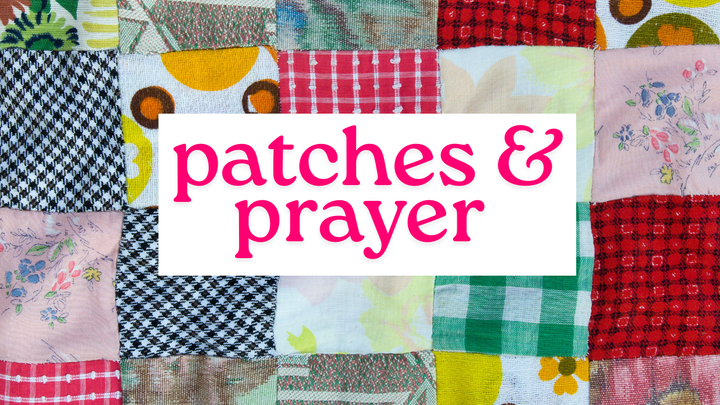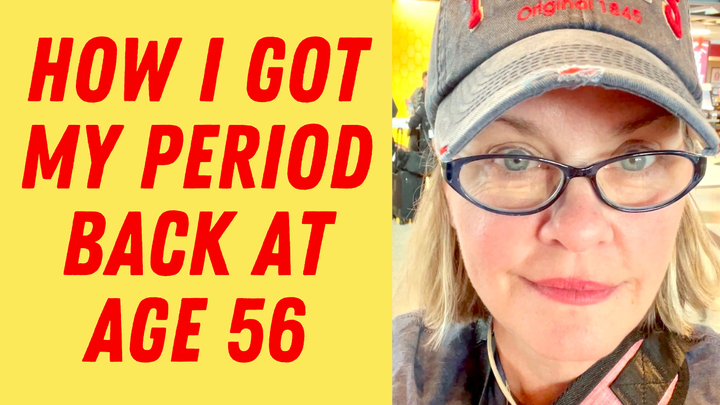Is It Wheat Belly? Or Cortisol Belly?
Is it Wheat Belly? Or cortisol belly? I finally figured out why I haven’t been able to lose the baby fat on my mid-section.

Is it Wheat Belly? Or cortisol belly? I finally figured out why I haven’t been able to lose the baby fat on my mid-section.
You know that extra spare tire you put on after you gave birth. If you’re under 30, maybe you don’t know. If you’re over 30, you know what I’m talking about.
I have had extra junk in the trunk ever since Kate was born 4 years ago. Only it ain’t in the trunk. It’s stuck on my belly, waist, and to a lesser degree, my hips and thighs. It’s not a lot of weight — only 10 or 15 pounds. But it’s enough to make me hate shopping for clothes.
No matter what I’ve done, I can’t seem to get rid of it. I gave up grains and starches for a couple months on the GAPS diet. Nada. I tried low carb. More than once. No change. I had success losing some weight with The Four Hour Body. (Yay! 15 pounds!). Alas, the belly fat didn’t budge.
A few nights ago, as I was surfing the web on my iPhone at 3 in the morning, I finally found the answer.

Wheat Belly?
And guess what? It doesn’t have squat to do with wheat. Speaking of Wheat Belly (a new book I have yet to read but it’s on my list) I loved this post by Matt Stone’s 180 Degree Health blog the other day: Wheat Belly.
I loved Matt’s post not because it was a work of literary genius (although I enjoy Matt’s writing very much and I especially liked the term he coined, “wheat hunt” instead of witch hunt). Nor was his post particularly scientifically sound — a bunch of young guys with great metabolism eating pizzas doesn’t really prove anything. I ate tons of pizza when I was in my 20s and I had a flat stomach, too.
I love that Matt is one of the few (the only?) voices out there sticking up for wheat, the latest whipping boy in the real food world. I’m so tired of people blaming grains for every health problem under the sun. I’m sick to death of hearing people tell me if I just ate fewer carbs and cut out grains, I’d be “lean”. Guess what, guys? Tried it; didn’t work. (And come talk to me after you’ve had a baby and you’re over 40.)
But I digress… You guys want to hear about my belly fat revelation.
High Cortisol at Night
Cut back to me surfing the web at 3 am.
Why the heck was I up at 3 am? You see, this is the other thing that’s been happening to me since Kate was born. Unrelenting insomnia. I have been waking up every night between 2 and 4 am since 2007.
When I started Real Food Media back in 2008, I was so busy working, I would often just get up at 3 or 4 and work until Kate woke up in the morning. I figured I was getting a few extra hours. I know, crazy! Of course, back then I was still drinking coffee so it was easy to get by on 5 or 6 hours of sleep.
I always fall back asleep. Usually it only takes 10 or 15 minutes, but sometimes I’m up for hours. (Actually, when I was still drinking coffee, it took a lot longer to fall back to sleep.)
Thank You, Julia Ross
It was Julia Ross, author of The Mood Cure who told me on the phone a month ago that waking up in the middle of the night is a sign of high cortisol. When she said that, two things came to my head. (1) High cortisol causes belly fat. (2) High cortisol has to do with adrenal exhaustion (something I’ve struggled with on and off for years — you know how much I used to love my coffee!).
During our phone consultation, I raved to Julia about how my nighttime cravings for sweets, carbs and wine were disappearing with the help of 3 square meals, plenty of fat and protein, and a cocktail of amino acids.
I told her the only thing that was still bothering me was waking up at night. No matter how much Tryptophan and I took before bed, I’d still wake up at 2 or 3 am, ready to take on the world. I’d lie there in bed, thinking about someone I need to email and deliberating about some problem I was having at work.
Low Blood Sugar and Cortisol
Julia told me that this is very common and it’s often caused by hypoglycemia, or low blood sugar. When you eat dinner around 6 or 7, by 2 or 3 am, it’s been 8 or 9 hours since you’ve eaten. Your blood sugar drops and your adrenals come to the rescue by pumping up the cortisol. And your eyes pop open and you are UP. If any of you are going through this, you know how annoying it is.
I know I have hypoglycemia because ever since I’ve been following the Julia Ross The Mood Cure protocol, I have noticed that if I skip a meal or don’t eat enough protein and fat at a meal, I end up feeling shaky, weak and dizzy. One time it was so bad, I literally couldn’t see straight.
For me, the early evening was particularly bad. Looking back, it was because I had skipped either breakfast or lunch. By 5 or 6 pm, I was starving. And that was when I’d reach for a glass of wine. Take the edge off. It also helped me to relax. Which I desperately needed because my cortisol was rising at night (after intermittently starving myself since the night before) and I was doing whatever I could to calm down.
And this is why the cravings for sweets and carbs came later in the evening. Because the wine was a temporary fix but eventually — a few hours after dinner — I’d start to crash. And I needed another fix. Chocolate or potato chips or whatever I could find in the cupboard. And I always had a stash.
Problem is, wine, sweets and carbs don’t sustain. You will crash. And that crash happens around 2 or 3 am.
And yes, the fact that you skipped breakfast this morning and propped yourself up with coffee DOES affect you tonight. You will pay eventually.
What Really Sucks About High Nighttime Cortisol
Being woken up in the middle of the night is bad. But there is something even worse. Remember that thing about high cortisol and belly fat? Yeah, not only am I getting woken up every dang night by my adrenal glands in overdrive, but it’s making me fat!
I was annoyed before, but when I realized this the other night at 3 am, I was pissed! Here I was, all these years, eating too little because I was trying to lose weight, and skipping meals because I’d heard about the benefits of intermittent fasting — and not only was it was making me drink too much and eat too much chocolate, but it was making me FAT!
How to Lower Cortisol at Night
Thankfully, Julia told me what to do to remedy the situation. First of all, she said to have a late-night snack. Right before bed, eat something balanced with enough fat and protein. Like maybe a whole wheat cracker with some peanut butter or cheese or hummus.
So I tried it. Last night I had a few ounces of raw cheese, some raw milk (yes, I’m on the GAPS diet but I have no problem with dairy,) and a tablespoon of peanut butter.
And guess what? I slept through the night! I was so thrilled to wake up at 7:30 this morning. I slept like a rock!
She also told me about a supplement called Seriphos. It’s an amino acid supplement that people take for a short period of time to help lower cortisol. Needless to say, the other night at 3 am when I realized I was fat from these cortisol surges, I hit the one-click on Amazon.
Tonight’s my first night on the Seriphos. I’ll let you know in the comments tomorrow how it goes! Oh, yeah, and I’m going to make sure I have my bedtime snack. And I’m hitting the sack by 10 pm.
Wheat Belly? Nope, Cortisol Belly!
I know there are a lot of people out there who are gluten-intolerant. There’s no question about that. And it’s true, those folks should avoid wheat (they should also fix their abnormal gut flora, but that’s a whole ‘nother blog post).
But blaming bloated bellies on wheat consumption is simplistic and ridiculous. (OK, OK I’ll read Wheat Belly and then I’ll write another blog post. I gotta give the man his due.)
The fact of the matter is that eating wheat is not going to make you fat if you have healthy adrenal glands and perfect metabolism. I ate wheat pretty much daily for 39 years (except for the 2 years I went without when I was healing my gut) and was thin as a rail. It was after the birth of my first child that my hormones got wacky and I gained weight. Wheat or no wheat, the spare tire doesn’t budge.
And avoiding wheat is not going to make you lose weight if your adrenals are fried. And yeah, pregnancy, childbirth and nursing are stressful — and hard on your adrenals.
So is coffee.
Maybe I should have called this post “Coffee Belly.” Or “Sugar Belly.” The truth is, if you think you’re going to lose weight by skipping the wheat but continuing to drink your daily cup of joe and eating your dark chocolate, think again. It will catch up with you. If you crave coffee in the morning, that’s a sure sign of adrenal fatigue.
The funny thing is, all of this information is in Julia’s book, The Mood Cure. I read that book for the first time in 2008. Isn’t it strange how it takes us so long to figure things out?
I’m excited to see how things go with this new discovery. I will keep you posted!
UPDATE
I was in a rush to get this posted last night before 10 pm (have to get to bed early for my adrenals). I neglected to mention that you should get your cortisol levels checked with a saliva test. Julia Ross goes over this in her book.
I did this last year and my results show normal cortisol in the morning, low mid-day, and normal at night. I didn’t do the 5-times-per-day test that Julia recommends (one more test at night) but I am pretty certain that it would show that it is high at night. This is a pretty typical pattern — normal in the morning, low mid-day, and normal at night — and then the cortisol keeps rising into the night, which is why I have trouble falling asleep. Cortisol should drop at night and should be at normal levels throughout the day. It should be highest in the morning.
Also PLEASE read The Mood Cure before taking any supplements! And better yet, work with a naturopath or a holistic doctor.
Share Your Comments Below
How about you? Have you had issues with your hormones? Please share your thoughts and experiences below.


Comments ()